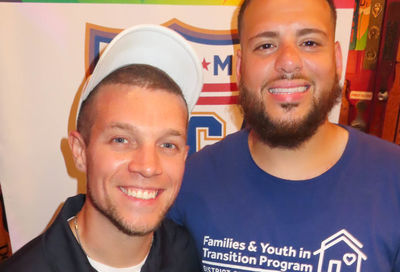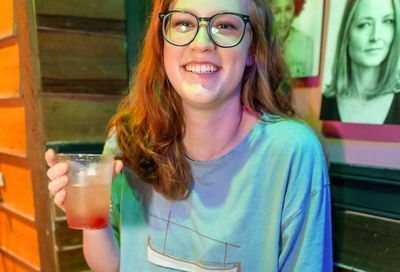Fields of Dreams
The You Can Play project reminds us that for gays playing sports, it doesn't matter what you play, what matters is that you can play
If there’s anything that illustrates the difference between men and women — and, by extension, gay men and lesbians — it’s sports.
I do not mean any difference in talent or will to win. I grew up with a mother who was the oldest of seven siblings, six of whom played softball, four of them extremely competitively, and three of those four being the girls. The ”throw like a girl” thing didn’t apply — my aunts could take your head off if you weren’t careful. And I felt like my mom was always the ”win, win, win” parent when it came to my own sports life, whether on a baseball field or, most lastingly, the tennis court.
No, the real difference is how radically accepting women’s professional sports are of openly lesbian players than men’s pro sports are of openly gay ones. From basketball to soccer, lesbian players aren’t just open, they’re celebrated. In tennis, the country’s largest facility and the site of the U.S. Open is named after a lesbian who happens to be one of the most famous figures in all sports, male or female: the USTA Billie Jean King National Tennis Center. It’s a much different world than the one King initially came out into.
Men’s professional sports seems to have more than its share of prominent gay players who all share one important fact: they’re retired. David Kopay, Billy Bean, John Amaechi, Esera Tuaolo, Wade Davis – and that’s just a short list off the top of my head. Outside of sports such as diving that primarily see attention only every four years at the Olympics, none of America’s major sports have seen open and active gay male players. Not even a highly individual sport like tennis, such a groundbreaker when it comes to the women’s game, has seen a player ready to leave the closet behind while still playing ball for a living.
I can get a little passionate about this because sports did play such an important role in my own youth. Making my high school tennis team my freshman year on my first tryout — then winning my first match — did much-needed wonders in confidence for my slightly fey, bookwormish self.
In one of my worst decisions in life, I walked away from it, first because while I was good, I wasn’t so good I could play in college. Second, once I came out, I fell into the idea that gays don’t play sports. It took me more than a decade to once again pick up a racket, which means I can never really recover the game I once had. I can still weep myself to sleep over memories of my youthful two-handed, topspin backhand, once the best shot in my game, now a shadow of its former self.
More seriously, once I started playing with the Capital Tennis Association, our local LGBT league, I remembered what I loved about the game. I got into better (if not great) shape. I met some amazing friends. I even found a husband, something I wouldn’t have predicted as a 15-year-old who would walk on court wearing a kamikaze headband.
All this is why I believe so strongly in the mission of Team DC and all of our local LGBT sports groups. It doesn’t matter what you play, what matters is that you can play. And it’s why I’m so impressed with what the You Can Play Project is doing to make professional, college and high-school sports a more welcoming place for LGBT athletes. Straight allies like Patrick Burke and the pro athletes who are supporting the project are helping the sports world catch up to the rest of us.
And if all goes well, it won’t be long until that major league gay athlete you see on the cover of Metro Weekly won’t be retired, but will still be on the field ready for you to cheer him on.
Sean Bugg is the co-publisher of Metro Weekly. You can reach him at sbugg@MetroWeekly.com or follow him on Twitter, @seanbugg.
Support Metro Weekly’s Journalism
These are challenging times for news organizations. And yet it’s crucial we stay active and provide vital resources and information to both our local readers and the world. So won’t you please take a moment and consider supporting Metro Weekly with a membership? For as little as $5 a month, you can help ensure Metro Weekly magazine and MetroWeekly.com remain free, viable resources as we provide the best, most diverse, culturally-resonant LGBTQ coverage in both the D.C. region and around the world. Memberships come with exclusive perks and discounts, your own personal digital delivery of each week’s magazine (and an archive), access to our Member's Lounge when it launches this fall, and exclusive members-only items like Metro Weekly Membership Mugs and Tote Bags! Check out all our membership levels here and please join us today!



















